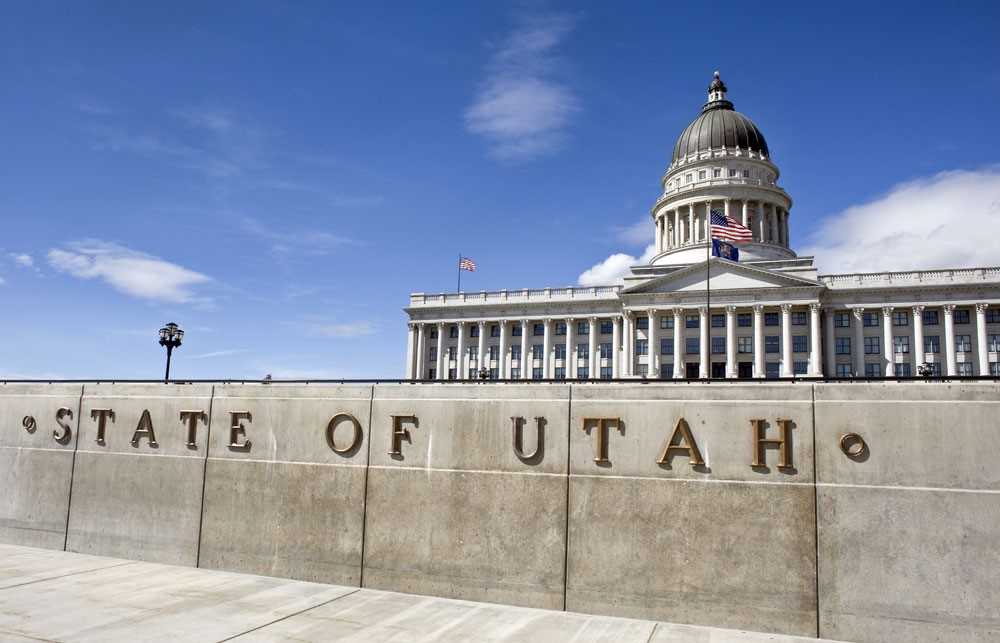

UTAH Genetic Testing Privacy Act Amended
Employers and Insurers May Not Require mRNA “Vaccination”
Let’s Get Technical: From Genetic Tests to Genetic Procedures
On March 24, 2022, Utah’s governor signed SB144 into law. This bill contains amendments to the state’s Genetic Testing Privacy Act which should prevent employers from requiring mRNA “vaccines” for workers or applicants. SB144 is a new approach to protecting folks from forced vaccination that appears to be a first in the nation. Instead of narrowly banning mandatory COVID-19 vaccines, these amendments make powerful changes to the state’s genetic privacy statutory scheme.
Specifically, the original Utah Act defined DNA to include RNA and chromosomes; under the new amended law “DNA” also includes, “proteins, enzymes, or other molecules associated with a genetic process….” And the new law adds “a genetic procedure” to the existing ban on employers requiring a person to submit to a “genetic test.” A genetic procedure is defined as any therapy or procedure intended to, “add, remove, alter, activate, change, or cause mutation” in a person’s DNA or, “replace, supersede, or bypass a normal DNA function.”
Sponsor’s Perspective Omits mRNA Issue
At the hearing on this proposed law, the senate sponsor noted that the Act already provides “robust” protection for employers and insurance companies requesting genetic information. He pointed out that a key reason for the bill was to prepare for future technologies, noting that CRISPR-style genetic modification of humans was likely to be done at some point in time. In the Sponsor’s view, the “genetic procedure” definition would protect against such future dangers.
Activists’ Point of View
The Utah advocates promoting this bill used the language of genetics to safeguard medical privacy and preclude mandated mRNA vaccines. At a national level, we have the Genetic Information Nondiscrimination Act of 2008; it bans employers and insurance firms from discriminating based on genetic information. Utah’s law did the same. But since Utah’s definition of DNA included RNA, it had some implication for mRNA vaccines. The original Utah law only precluded mandatory “testing.” Now, mandatory “genetic procedures” such as introducing genetic material into the body will also be precluded.
Utah is now a state where neither private nor public employers can make undergoing a genetic procedure as a condition of employment. The new law includes a $100,000 fine for intentional violation. And since “damages” are included, this should open the door to a lawsuit for an mRNA vaccine injury. And while not necessary for protections under this law, activists point to numerous studies showing that we have no way of knowing whether these vaccines are changing a person’s DNA. They point to evidence that mRNA-type compounds can in fact change our DNA and note that no research has been done to show that a vaccine’s genetic information does not “integrate” into the DNA.
The Way Forward
Utah’s success in passing these genetic protection amendments should be an inspiration to activists around the nation: while many people assume that something called a “vaccine” should be safe, they may have a change of heart when they are educated to the fact that mRNA vaccines are in fact a genetic procedure. Many states already have some form of genetic privacy protection law which could be amended. And states without such a law can borrow language from the Utah Act and amendments to craft protection in their own state. The law is so new that challenges on the merits are not available. But activists note that, “Even if states have laws allowing mandatory vaccination, it is likely that they will have a hard time preventing laws that block genetic tampering of people. Anyone who opposes such a law is guilty of allowing humans to be made into GMO’s.” (Utah activist June 2022)
RECENT NEWS


EPA Deregulation of Clean Air and Water: does it go too far?
February 19, 2026


Video: Health Information Exchanges and Your Medical Data
February 5, 2026
